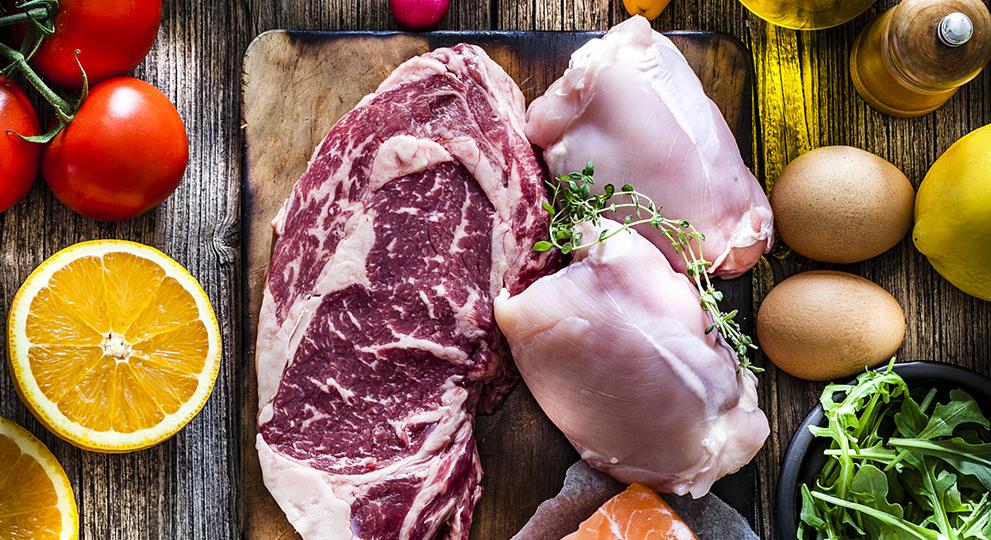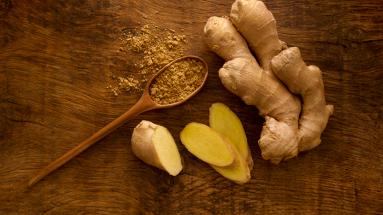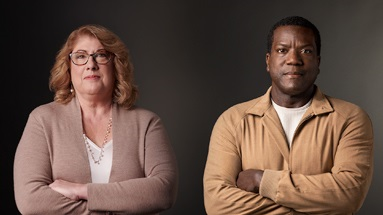The power of protein
The power of protein

Proteins are the building blocks of life. Every cell in your body contains protein, and its job is to build, grow and repair your cells and tissues. After water, protein is the second most common substance in the body. It is the basis of body structures, such as skin and muscle.
What is protein?
Proteins are large, complex molecules made up of hundreds or thousands of smaller units called amino acids that attach to one another in long chains. There are 20 different types of amino acids that can be combined to make a protein. The order and placement of amino acids determines each protein’s unique structure and function.
Your body can make some amino acids—and the proteins they form—on its own. But it's important to get protein in your diet to help your body function properly.
What does protein do?
Protein plays a role in nearly every process in your body and often works to support your whole body. For example, protein can help with joint stability through connective tissue and its main component, collagen, which helps hold the body together. Protein can also act like a messenger, sending signals between different organs, cells and tissues.
Antibodies are another type of protein that fight off infection and help protect your body from bacteria and viruses. They can help support your gut health too.
The role of protein in cancer
As you go through cancer treatment, protein is important to help your body heal and recover, especially after treatment, such as chemotherapy or radiation. You may be leading a less active lifestyle or resting afterwards, which can often lead to a loss of muscle.
That’s where protein comes in. Protein intake, coupled with muscle-strengthening exercise, helps maintain and grow muscle tissue that helps your body function each day. Building muscle tissue can help provide your body with strength, endurance and balance.
Ask your healthcare team what exercises and diet changes may be right for you.
Incorporating protein into your diet
Unlike fats or carbohydrates, protein is not stored in your body, so it must be consumed as a regular part of your diet. Getting protein from different sources can help make sure that you have a variety of amino acids that your body needs.
You may think that animal-based foods, such as meat or poultry, are the only way to get protein. However, foods such as beans, lentils and sunflower or pumpkin seeds all have protein in them. Greek yogurt has the same amount of protein in 1½ cups as 4 ounces of chicken breast.
Sami Mansfield, founder of Cancer Wellness for Life, suggests some simple ways to add more protein into your daily meals:
- Add beans into soups, stews or salads. Make sure to rinse beans before you eat the
- Eat plain Greek yogurt. Use it as a replacement for sour cream on tacos. Add some ranch seasoning to it to make a dip for cut-up veggies. Mix it in with some cinnamon and honey and spread it onto apple slice
- For a snack, try 4 ounces of cheddar cheese (a large palmful) and a ¼ cup of roasted sunflower seeds, which adds up to 32 grams of protei
- Cooked vegetables can pack protein. A cup of cooked broccoli, spinach or Brussels sprouts has 4 to 5 grams of protei
- Peanut or almond butter has 7 grams of protein per serving. Be mindful if you are keeping track of calories, because nut butters are high in fat and calories
You can also talk to a clinical dietitian to help you and your caregiver make a personalized meal plan and protein goal. Protein is an important part of your diet. Your body needs it to heal, recover and function properly. Whether it’s through animal sources (meat, poultry, seafood and eggs), plant sources (beans, peas, soy products, nuts and seeds) or dairy (Greek yogurt or cheese), try to incorporate protein into your daily meals.
The information contained herein is provided for educational purposes only and is not intended to replace discussions with a healthcare provider. All decisions about your health and nutrition should be made with a healthcare provider.
Sami Mansfield is an oncology exercise specialist and Director of Oncology Wellness for one of the largest cancer centers in the Midwest. She is also the founder of Cancer Wellness for Life, an organization focused on developing oncology wellness and exercise resources for hospital and healthcare organizations, nonprofits and individuals affected by cancer.













